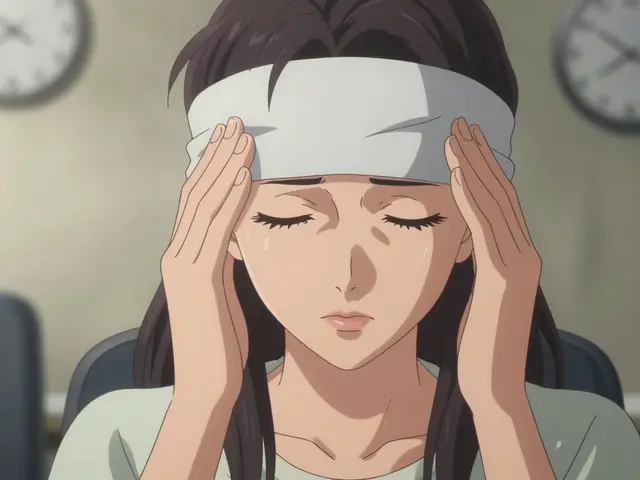Anemia — what it is and what you can do today
Anemia steals your energy and focus and often goes unnoticed until it becomes severe. If you feel unusually tired, short of breath with small effort, or see paler skin, check for anemia. Anemia means low red blood cells or low hemoglobin. Common types include iron deficiency anemia, anemia of chronic disease, and deficiencies in vitamin B12 or folate. Some medications and autoimmune treatments can also cause anemia, so your medicine list matters.
Quick tests and when to see a doctor
A basic complete blood count or CBC and a ferritin test show most problems. CBC gives hemoglobin and red cell size while ferritin shows iron stores. Low hemoglobin with low ferritin points to iron deficiency. Normal ferritin with low hemoglobin may mean anemia of chronic disease. Low B12 can cause tingling or memory issues and needs testing. See a doctor if symptoms are new, severe, or getting worse, or if you have heavy bleeding, unusual bruising, or unexplained weight loss.
Simple diet and supplement tips
Food first is a good rule. Red meat, liver, shellfish, beans, lentils, dark leafy greens, and iron fortified cereals boost iron. Vitamin C helps iron absorption so have orange juice or bell pepper with meals. Avoid tea and coffee with iron meals because tannins block absorption. If a doctor prescribes iron pills, common forms are ferrous sulfate, ferrous gluconate, or ferrous fumarate. Start low if pills upset your stomach and raise the dose as you tolerate it. Taking iron on an empty stomach helps absorption but take with food if nausea is a problem. Recheck labs after eight to twelve weeks because iron therapy takes time.
B12 or folate deficiency needs different treatment. Oral B12 can work for mild cases but injections are common when absorption is poor or levels are very low. Folate supplements help when diet is low in fresh vegetables.
Sometimes anemia signals a deeper problem and needs more investigation. Chronic infections, autoimmune disease, kidney disease, and some medications including certain immunosuppressants can cause or worsen anemia. If iron treatment does not fix the issue, your doctor will check for hidden bleeding, kidney problems, and other causes.
Practical follow ups help you track progress. Keep a medication list, bring it to appointments, and note symptoms like energy, breathlessness, dizziness, and changes in menstrual bleeding if relevant. Expect side effects from iron such as constipation or nausea which you can reduce with fiber, fluids, and slower dose increases. Small steps bring big change when you treat the cause, follow medical advice, and monitor labs.
Our site offers guides on supplements, prescription costs, and related conditions if you want to read more. If you have new worrying symptoms get checked promptly. Start with a simple blood test, talk to your doctor about diet and medications, and make a plan to recheck labs after treatment starts. Many people recover well once the reason is found and treated so don’t delay basic checks or ignore persistent fatigue. Always ask your clinician if you are not sure.

The Connection Between Tumor Growth and Anemia
In my recent research, I discovered a fascinating connection between tumor growth and anemia. It turns out that as tumors grow, they can disrupt the body's ability to produce healthy red blood cells, leading to anemia. This is because tumors often require a significant amount of the body's nutrients and oxygen supply, leaving less available for red blood cell production. Additionally, some cancer treatments, like chemotherapy, can also contribute to anemia by damaging the bone marrow. It's essential to be aware of this connection, as proper treatment and management of anemia can significantly improve the quality of life for cancer patients.




